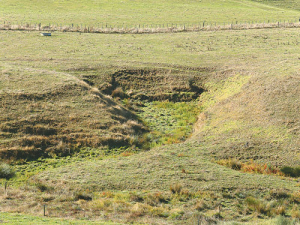Wetlands are often referred to as the kidneys of the land: they filter, absorb and transform water contaminants, so helping to reduce excess reaching waterways.
In particular, wetlands can very efficiently remove excess nitrogen by creating environments whose chemistry and hydrology are ideal for treating, in particular, shallow sub-surface flow, and runoff from dairy farms.
A recent review of scientific studies in New Zealand, by NIWA for DairyNZ, found seepage wetlands can reduce the amount of nitrate – a problematic form of nitrogen entering them by up to 75-98%; that’s higher than we previously thought.
We already knew protecting and enhancing onfarm wetlands reduces contaminants reaching waterways, but this review has highlighted how effective they can be.
Wetlands are also great at trapping sediment and sediment-bound phosphorus, reducing faecal bacteria and providing a habitat that improves biodiversity, while also mitigating flooding risk.
Wetlands are areas of land where the soil is permanently or temporarily covered by water saturating the soil. These are the areas where ponding quickly occurs and remains after rainfall, where springs emerge and where soils pug easily.
Seepage wetlands are commonly located where surface and sub-surface flow converge, often where a change of slope occurs in the landform.
The main process of treating nitrogen entering a wetland is called ‘denitrification’; it involves bacteria converting nitrate into harmless nitrogen gas before it can reach a waterway.
Wetlands work by creating the right environment for these bacteria to thrive. Nitrate removal is maximised during increased soil-water contact periods, water travelling deeper into the soil where oxygen is absent, and plentiful sources of carbon from decaying leaves and sticks. Some nitrate removal also occurs via uptake by microbes and plants.
Farmers can act to improve wetlands’ function and, therefore, their ability to reduce the amounts of nitrogen reaching waterways. These steps include restricting stock access to prevent pugging and soil compaction, promoting the right sort of vegetation cover, reducing preferential surface flow paths and minimising surrounding earthworks.
To make wetland protection and enhancement easy, DairyNZ has partnered with regional councils and Landcare Research to develop regional planting guides and the national Riparian Planner -- free to use at riparian-planner.dairynz.co.nz.
The tool helps you map farm waterways and wetlands, and assists with plant selection, budgeting and the recording of actions needed to meet Water Accord and regulatory requirements.
• First published in the February issue of DairyNZ’s Inside Dairy.
















